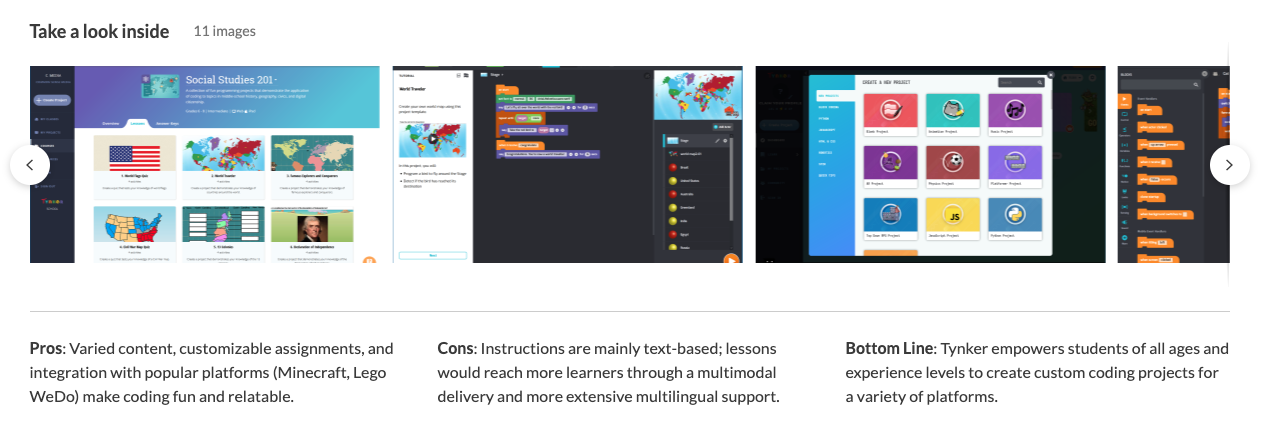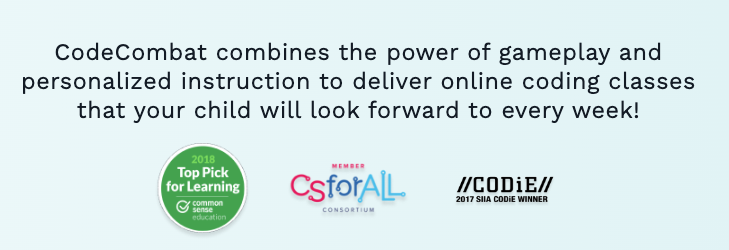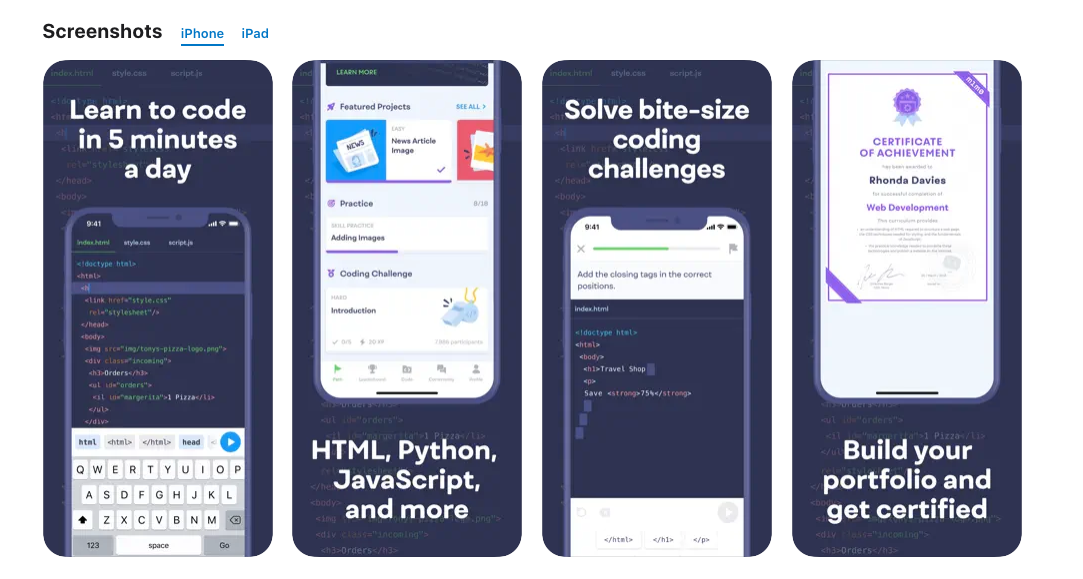If the popularity of ChatGPT and other AI-based platforms hasn't been enough of a recent signal, I'll just say it again—the future is here, and the physical and digital worlds are becoming more and more integrated.
As a result, coding is an increasingly important skill for kids to learn; beyond what it was years ago and even back then we were touting its value.
Thankfully, these days, getting started could take a number of forms, as there are tons of amazing coding websites, games, and apps designed to help your kids learn to code—and have fun while doing so!
So, here are 10 coding games that your kids can start playing - and learning - with today.
1. Code Karts
- Price: Free
- Ages: 4+
Self-described as “pre-coding,” Code Karts aims to get kids in the programming mindset as early as age four. In Code Karts, your child will lay tracks made of pre-coded “bricks” to solve logic puzzles in the form of raceways.

Code Karts is a colorful and exciting intro to coding that will engage kids early, and hopefully entertain them to the point of wanting more. One app reviewer emphatically wrote about Code Karts: “ONE OF THE BEST CODING FOR KIDS APPS THAT I HAVE USED IN 30+ YEARS.”
2. Codespark Academy
- Price: Free at first, and plans start at $5.56/month
- Ages: 5 - 10
Codespark Academy is the award-winning brainchild of researchers and designers at MIT, Princeton, and Carnegie Mellon. When your kids join the Academy, they’ll be exposed to the fundamentals of programming through puzzles, games, and other daily activities that adapt to your child’s unique skill level.
The best part is, your kids don’t even need to know how to read to learn! Codespark Academy is free to try, and, though you will need to pay eventually, the game releases new content every month so that kids will always have different challenges to look forward to.

This satisfied parent reviewed Codespark Academy on Common Sense, saying:
"I love how the game teaches problem-solving and alternate ways to meet a goal, quite similarly to actual coding. Then, once they get to the Create mode, it's where kids can use what they learned, where they can create their own game and/or a story where they can use their own voice for characters and move them around using code."
3. CodeMonkey
- Price: Free at first, and plans start at $6/month
- Ages: 4 - 14+
CodeMonkey is an engaging browser-based learning platform that will get your kids coding in no time. By playing its award-winning games, kids who join CodeMonkey will get experience with actual coding languages like CoffeeScript and Python. Kids who stick with CodeMonkey will find themselves well rewarded, as they level up and learn increasingly complex skills.

This teacher said of CodeMonkey:
"What I like most about CodeMonkey is its engagement level, but most importantly the realistic coding student do in a text-based editor. The game-like quality makes them willing to take risks and persevere."
4. Tynker
- Price: Free at first, and plans start at $8.50/month
- Ages: 5 - 18
Like other entries on this list, Tynker is a great game-based way for your kids to learn to code (table stakes, right?) but what sets it apart is that your kids can take what they learn and directly apply it to the kid-favorite, all-star game Minecraft.
With their new-found coding skills, kids can program their own mods and texture packs, and even create custom servers in the game. If your kids love Minecraft, downloading Tynker is a no-brainer.

Of Tynker, this discerning user said:
"This product is very accommodating towards children. Many times, individuals are daunted to learn about coding because it seems boring or tedious. However, this product includes many pictures and cartoon characters that will likely keep children entertained. As well, every step is color-coded, making learning very easy and simple. Everything is so organized and you can look back at your mistakes easily."
5. Code Club World
- Price: Free
- Ages: 9 - 13
Code Club World is a platform that wants not only to teach your kids code but to foster their creativity as well. Created by the Raspberry Pi Foundation, Code Club World’s learning track will have your child customize their own avatar, design t-shirts and dance routines, and even make their own music.
Your child will start by learning block-based programming, eventually moving on to the text-based code Python. They’ll be rewarded with badges all the while, encouraging them to keep up their great work.
“We believe every child should have access to a high-quality coding and digital-making education. And with this in mind, we set out to create Code Club World, an online environment as rich and engaging as a face-to-face extracurricular learning experience, where all young people can learn to code.” —Raspberry Pi Foundation
6. LightBot
- Price: $2.99
- Ages: 9+
Lightbot delivers a straightforward but engaging learning experience in the form of various puzzles that your child will need to solve by inputting different commands. Kids can learn basic programming concepts all the while, using what they learn to solve increasingly difficult problems.

With over 50 head-scratching levels, Lightbot will be sure to stump your kids only for them to have a “eureka!” moment thereafter. And for younger children, aged four to eight, there’s a simpler version, LightBot Jr.
You might even find yourself playing LightBot, with one parent saying that it’s a “fun way to learn programming, without knowing you're learning programming!
7. CodeCombat
- Price: Free at first, and plans start at $9.99/month
- Ages: 9+
CodeCombat approaches coding from the philosophy that kids learn primarily through play. So the “gaming” aspect of their game is front and center.
But that doesn’t mean they don’t also offer an incredible learning experience.

The problems that your kids will be challenged to solve in each lesson are presented as a chapter in an over-arching fantasy story. CodeCombat’s worldbuilding helps immerse kids so deeply that they might not even realize they’re learning.
This parent of an eager-to-learn child said:
"Even though the class starts every Saturday at 7 a.m., my son is so excited that he wakes up before me! CodeCombat creates a pathway for my son to advance his coding skills."
8. Swift Playgrounds
- Price: Free
- Ages: 10+
Swift Playgrounds takes a unique approach with its learning technology in that it focuses on helping kids learn Swift. (Swift is a programming language developed by Apple, which is used by many professionals to develop apps on the App Store.)

As a language, Swift continues to grow in popularity, making it increasingly appealing to learn. Though the later stages of Swift Playgrounds can be complex, even the most beginner of coding kids can jump right in and progress through its straightforward lessons and presentation.
In their review of Swift Playgrounds, thetechadvocate.org said:
"Swift Playgrounds teaches coding on a really well-designed and colorful platform, initially engaging learners with an easy-to-follow series of challenges to help an alien find its way on convoluted terrain."
9. Mimo
- Price: Free
- Ages: 12+
It’s no secret that learning to code, even with programs designed for kids, can be intimidating. There’s just so much to learn! Mimo addresses that issue by breaking up its lessons into bite-sized chunks.

Over time your kids will be able to develop their own “real world” projects that can be published and shared with their friends. Mimo provides an engaging and approachable platform for your kids to learn at their own pace.
This reviewer of Mimo said:
"The interface is user-friendly and easy to navigate, making it accessible for beginners. I have been using Mimo to learn and practice HTML, and I am extremely satisfied with the results. The lessons are well-structured and explain the concepts in a clear and concise manner."
10. Projects
- Price: Free
- Ages: 12+
Projects is another comprehensive, well, project, created by the Raspberry Pi Foundation. This time, rather than focusing on individual skills, they developed a catalog of over 250 coding projects for young coders to test what they’ve learned so far.

Examples of projects include coding musical instruments, creating various styles of games, making a stress ball app, and many, many more. Each project is designed to be completed in about an hour and enhance your child's already existent skills, taking them to the next level.
According to the Raspberry Pi Foundation, they want you and your kids to use coding to: "Learn coding and design skills so you can make things that matter to you."
A Time of Plenty
By equipping your child with coding skills, they’ll be more prepared for the future, and now is one of the best times to get your kids involved as there are more thoughtful, intuitive, and well-designed games to help your kids learn than ever before.
Different games and software are designed for kids of different ages and skill levels, so just be sure to find one appropriate for your kids. Get them the right one and they can be off on their coding adventure in no time!
